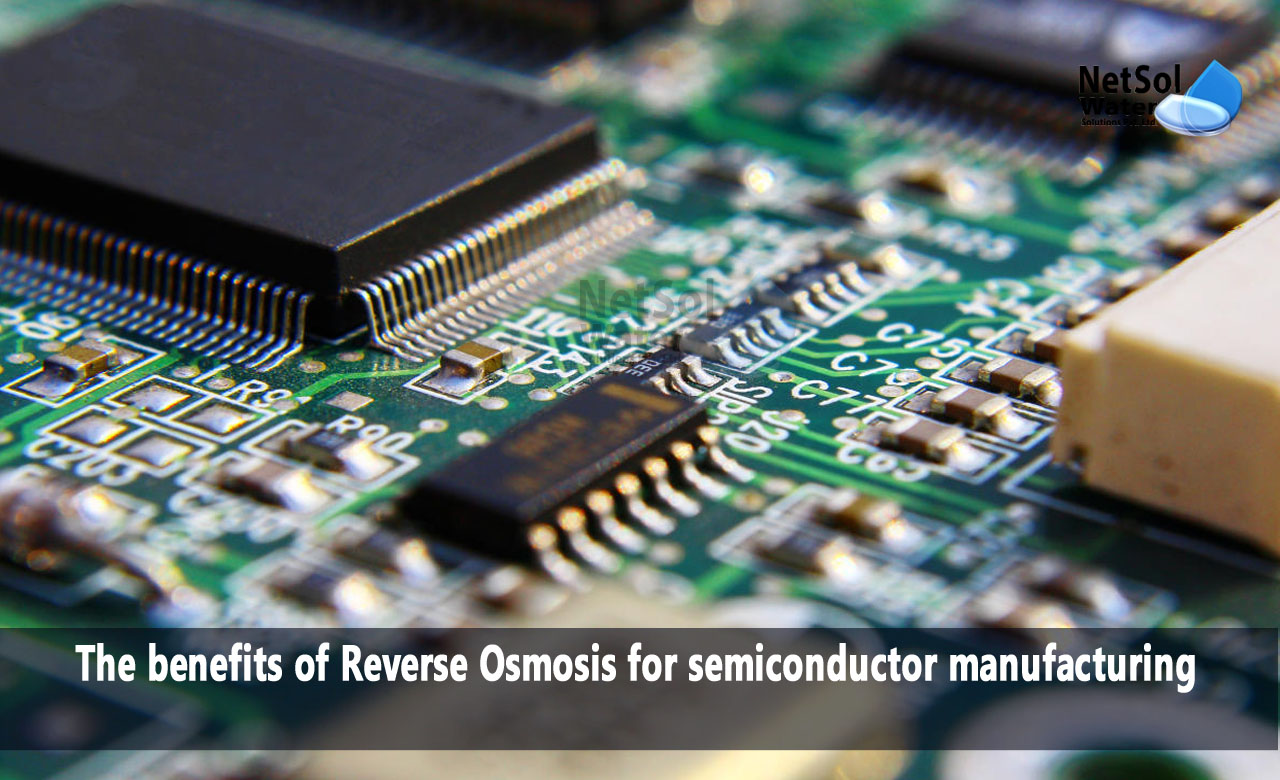The benefits of Reverse Osmosis for semiconductor manufacturing
Water is a vital resource in the semiconductor manufacturing industry, particularly when it comes to producing high-quality electronic components. The demanding nature of semiconductor fabrication requires ultra-pure water that is free from impurities and contaminants. Reverse osmosis (RO), a powerful water purification technology, plays a pivotal role in meeting these stringent purity standards. In this blog post, we will explore the significance of reverse osmosis in the electronics industry and how it enables the production of ultra-pure water for semiconductor manufacturing processes.
The Importance of Ultra-Pure Water: Semiconductor manufacturing involves a complex series of precise and delicate processes. Even the slightest impurities in the water used for these processes can lead to defects in the final electronic components, affecting their performance and reliability. Therefore, achieving ultra-pure water is crucial to ensure the highest quality and yield of semiconductor devices.
Reverse Osmosis: Purification at its Best:
Reverse osmosis is a water purification technique widely employed in the electronics industry to obtain the required level of water purity. It operates on the principle of selectively removing impurities and contaminants through a semi-permeable membrane. Let's take a closer look at the reverse osmosis process:
1. Filtration: Before undergoing reverse osmosis, the water goes through pre-treatment processes like filtration to remove larger particles, sediment, and organic matter. This preliminary step safeguards the RO membranes from potential damage caused by suspended solids.
2. Reverse Osmosis: The pre-treated water is then subjected to high pressure and forced through a semi-permeable membrane with minuscule pores. These pores allow water molecules to pass through while effectively blocking dissolved solids, contaminants, and impurities. The result is a stream of purified water.
3. Permeate and Reject Streams: As water passes through the RO membrane, it separates into two streams: permeate and reject. The permeate stream containsthe purified water, while the reject stream carries the concentrated impurities that were unable to pass through the membrane. The reject stream is either discharged or directed back into the RO system for further treatment.
4. Post-Treatment: Although reverse osmosis eliminates a wide range of impurities, additional post-treatment steps may be implemented to further enhance water quality. These steps might involve activated carbon filtration, deionization, ultraviolet (UV) disinfection, or ozonation. These supplementary treatments ensure that the water meets the ultra-pure standards demanded by the electronics industry.
5. Storage and Distribution: Once purified, the ultra-pure water is stored in dedicated tanks designed specifically for ultra-pure water storage. It is then distributed throughout the semiconductor manufacturing facility via a carefully designed distribution system. Continuous monitoring is carried out to maintain water quality and prevent any potential contamination during storage and distribution.
Advantages and Considerations:
Reverse osmosis offers several advantages for semiconductor manufacturing:
1. High Purity: Reverse osmosis can effectively remove a wide range of impurities, including salts, minerals, organic compounds, and microorganisms, ensuring the water meets the ultra-pure standards necessary for semiconductor production.
2. Process Reliability: Ultra-pure water obtained through reverse osmosis helps maintain the quality and reliability of semiconductor devices, as even trace impurities can adversely affect their performance and yield.
However, it is important to note that reverse osmosis systems consume a significant amount of energy due to the high pressures required. To mitigate this, semiconductor manufacturers often implement energy recovery devices or explore alternative water treatment technologies to optimize energy usage and reduce environmental impact.
Conclusion:
Reverse osmosis plays a vital role in meeting the demanding requirements of ultra-pure water in the semiconductor manufacturing industry. By effectively removing impurities and contaminants, reverse osmosis enables the production of water that meets the stringent purity standards necessary for semiconductor fabrication processes. With the support of this powerful water purification technology, the electronics industry can continue to produce high-quality semiconductors that power the electronic devices we rely on in our daily lives.
Netsol Water is Greater Noida-based leading water & wastewater treatment plant manufacturer. We are industry's most demanding company based on client review and work quality. We are known as best commercial RO plant manufacturers, industrial RO plant manufacturer, sewage treatment plant manufacturer, Water Softener Plant Manufacturers and effluent treatment plant manufacturers. Apart from this 24x7 customer support is our USP. Call on +91-9650608473, or write us at enquiry@netsolwater.com for any support, inquiry or product-purchase related query.



